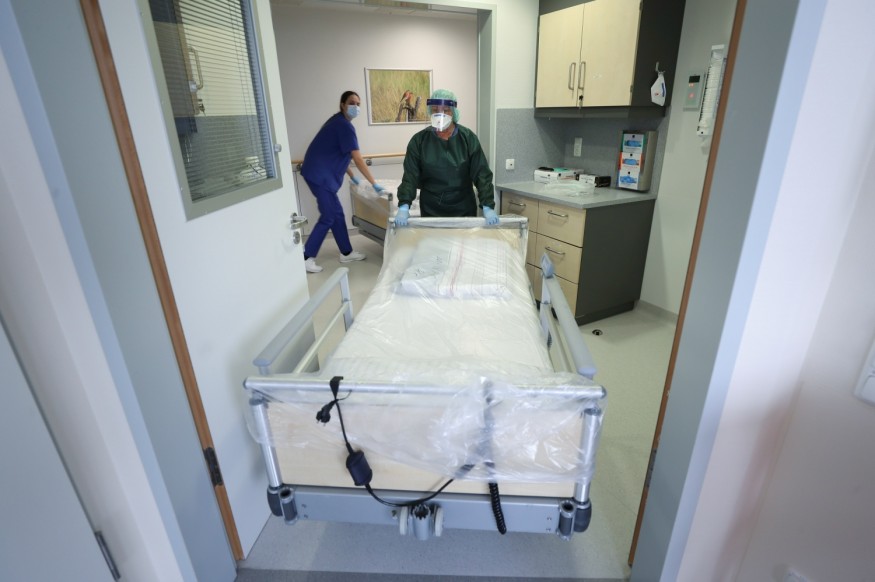COVID-19: Shortage in Medical Supplies And Hospital Beds

To say that the world was not prepared for the coronavirus pandemic is an understatement, as nations scramble in setting up additional beds to accommodate the growing numbers of patients brought about by the virus.
On the other side of the world, New York state officials have been searching high and low to source medical supplies and hospital beds after more than 10,000 coronavirus cases, including 56 deaths, have been confirmed.
"Everything that can be done is being done. We are literally scouring the globe looking for medical supplies," New York Gov. Andrew Cuomo said.
Since the imposition of massive lockdowns, streets in major cities around the world have become deserted. Health workers from Oklahoma City and Minneapolis are seeking donations for personal protective equipment (PPE).
Rural areas fared far worse. Medical staff have been wearing masks for their 12-hour shifts and changing in and out of their PPEs every time new patients diagnosed with the coronavirus come in.
"There's definitely this underlying fear in the community. You can see it," said Dr. Robert Wagner.
In Nebraska, 81 counties are without intensive care beds, while five healthcare organizations in Minnesota teamed up to convert a portion of a former prison into a makeshift isolation facility for coronavirus patients.
In the capital Washington, negotiators from the Congress and the White House resumed their discussions on a $1 trillion-plus economic rescue package in hopes of keeping the economy standing despite the growing pandemic.
"We are going to be celebrating a great victory in the not too distant future," an optimistic Trump said.
Pandemic
The effects of the coronavirus are being felt all over the world, with about 150 countries have confirmed cases and deaths. According to Johns Hopkins University, there are now 300,000 confirmed cases of the disease worldwide.
The working class, who rely on their jobs for their daily consumption, have been losing their jobs.
"I couldn't go back to work even if I was well because the mall where my shop is has been closed," said Debbie Velarde who went into self-isolation at her home in Denver after learning that a woman she trained during a work trip earlier this month is now hooked into a respirator after testing positive for the disease.
Medical supplies have been running out at an alarming rate. In Dartmouth-Hitchcock Medical Center, which is New Hampshire's largest hospital, volunteers had to sew face masks for patients, visitors, and staff because they are no longer available in stores.
A hospital in Oklahoma had to resort to asking for donations of masks, hand sanitizers, disposable gloves and other supplies.
"When people realize the virus is in their community, the anxiety kicks in and they are rushing to the emergency room. It's the emergency rooms that are overrun by people who are frightened," Integris spokeswoman Brooke Cayot said.
Unprepared
The health sector has been jolted by the fast and massive spread of the virus, as the healthcare system has been poorly prepared for an emergency of this magnitude.
Italy, which is the epicenter of the disease in Europe, has announced 800 new deaths and 6,600 new cases.
"Our sacrifice in staying home is minimum compared to that of other citizens trying to keep the nation well and functioning," said Italian Premier Giuseppe Conte in a Facebook address.
Health officials in Spain, which records the third highest number of infections worldwide, have acknowledged that some intensive care units are close to their limit. The army is now building a makeshift hospital with 5,500 bed capacity in a convention center in Madrid, where hotels are also being converted into medical wards for virus patients without serious breathing problems.
Global Shutdown
London's usually bustling Trafalgar Square and Leicester Square has become deserted as 1.5 million sick and vulnerable people were told to stay home for at least 12 weeks.
Although they are behind neighboring countries in the number of cases, Britain has already asked 65,000 retired nurses and doctors to return to work.
Back in the U.S. movements in Illinois, New Jersey and New York have been restricted.
"Yes we have a problem and we will deal with it. But let's find our better selves doing it, and let New York lead the way in finding their better selves and demonstrating their better selves," Gov. Andrew Cuomo said.
Meanwhile, in Wuhan City, where it all started, there were no new or suspected cases of the virus reported for four weeks in a row.
Related Articles:
-COVID-19 Test Kit Restriction Lifted by FDA
-COVID-19: Just How Contagious Is It Really?
-Research Shows Individuals With Blood Type 'A' May Be More Prone to COVID-19
Subscribe to Latin Post!
Sign up for our free newsletter for the Latest coverage!

















